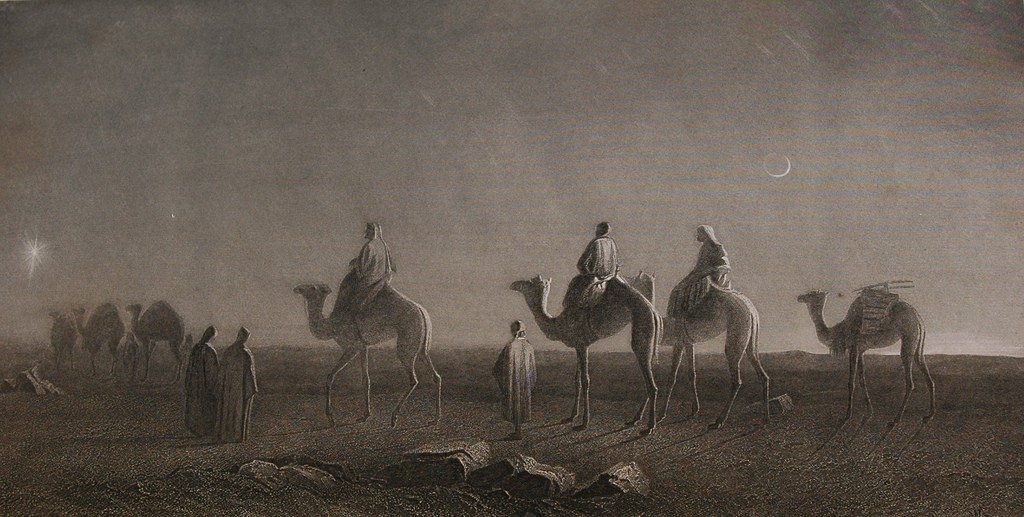
Ben Witherington III on the Magi
Ben Witherington III, "Wise Men Still Seek Him" in Incandescence: Light Shed Through the Word (Eerdmans: April 12, 2006), pp 39-40.Anyone who has ever studied the sculpture and art of the ancient Near East will at some juncture have run across a particular common household statue of a man. The man, with head inclined towards the heavens, has his eyes wide open and a look of wonder on his face. Both before, during, and after Jesus’ day, all societies were agricultural, and thus they were all dependent on the heavens, on rain and sun, in order to live at all. Of course, this is true of us as well, but as the majority of us have become increasingly less tethered to the soil we have tended to forget this fact. It is no wonder that persons in this days constantly consulted the heavens, the stars in their motions and configurations, the movement of the planets and of special astral events like comets, in order to discern when would be an opportune time to plow or allow the land to lie fallow, plan or pluck up. Indeed, one can read the Farmer’s Almanac even to this day and get a sense of how closely prognostication is linked to an agrarian society like that of Jesus. ¶ Astrologers, or Magi as they are called in our text (from which we get the word magic), were stargazers. They were not kings, but they were most definitely consultants to kings. The Magi constantly looked to the stars for help, for hope, for knowledge of the future, for truth. They did not believe the stars were inanimate matter; they believed they were likely to be supernatural beings — the heavenly hosts or angels. This is hardly surprising, since they saw them moving around in orderly patterns with the seasons of the year.
Our text in Matthew does not condemn these men for searching the stars, nor for following one large one in particular (which, oddly enough, considering its wandering pattern and its resting over the home of the Holy One, was more likely to be an angel than an actual star). It is significant, though, that the Magi had only the most general of understandings of what was going to transpire by consulting this source of knowledge. Their understanding is certainly enhanced tenfold when they arrive at the palace of King Herod and hear what the Scripture in Micah had foretold about the line of David, and of the Messiah being born in Bethlehem. There is perhaps a subtle polemic here, implying that the Word of God is far more revealing about such things than is the creation work of God.